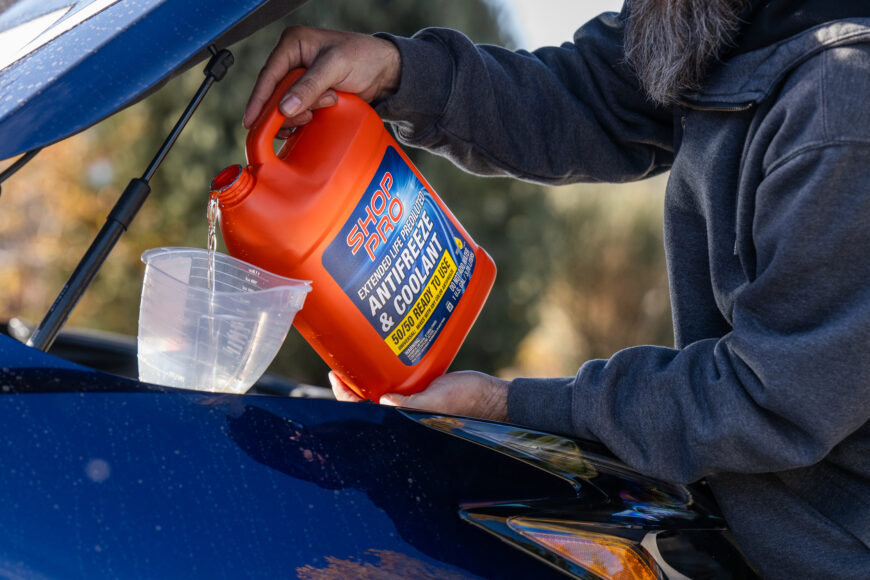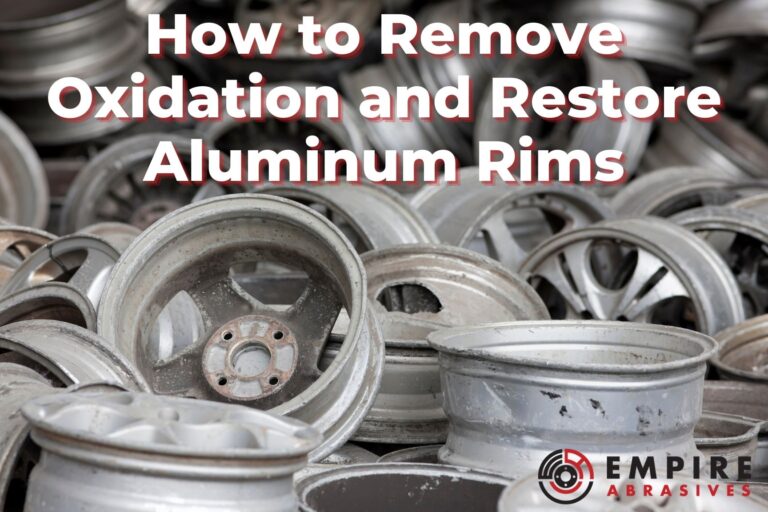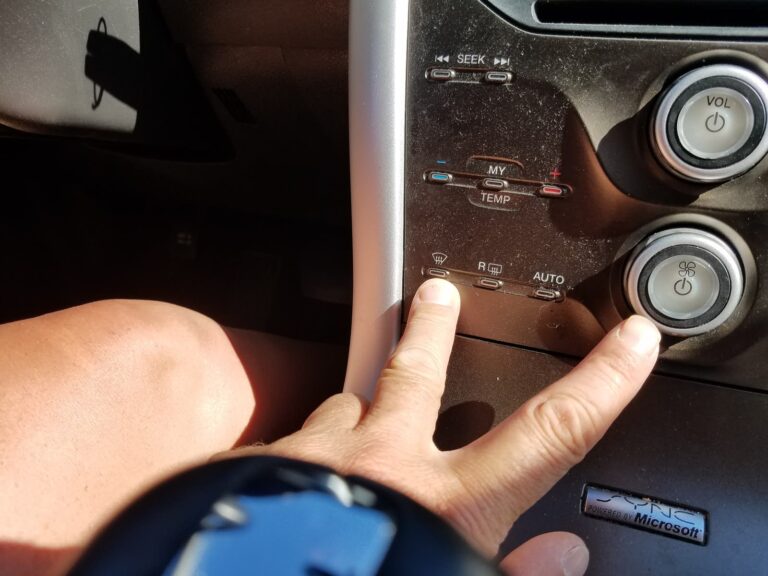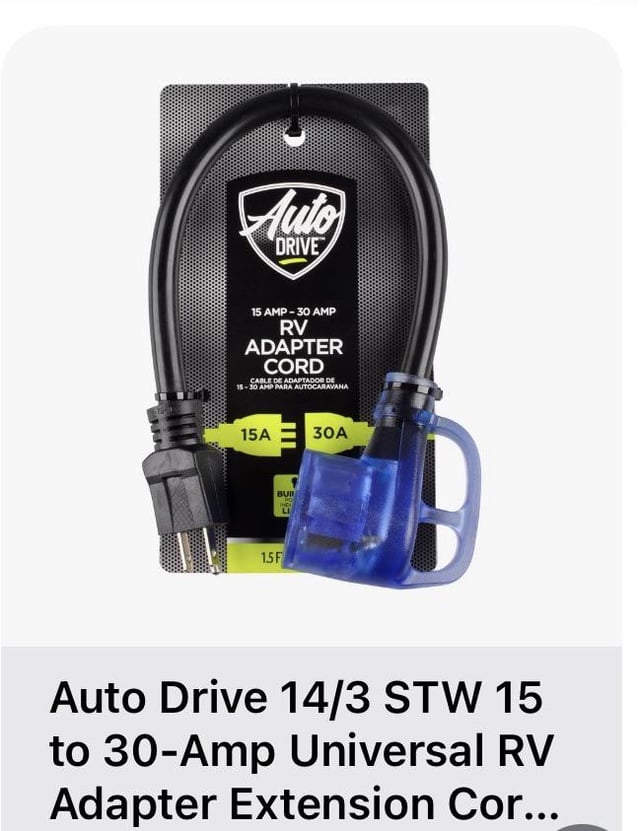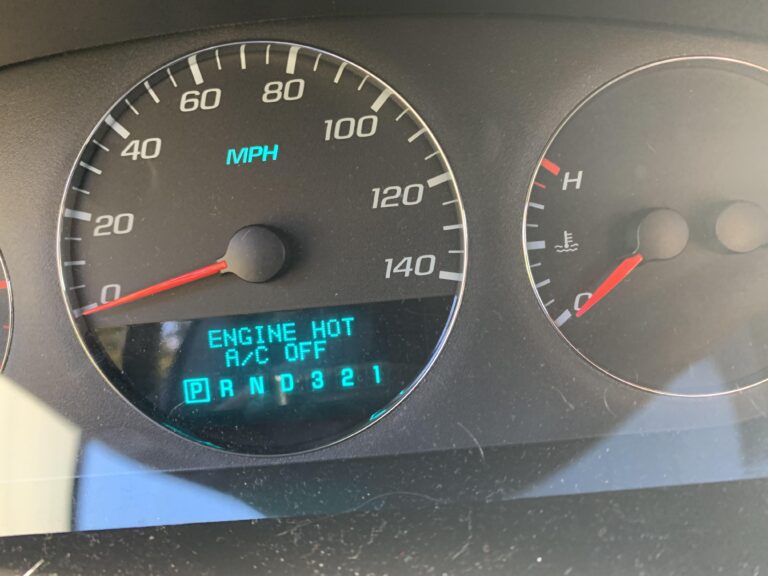Why Does My Truck Overheat When The AC Is On? Expert Solutions
Your truck may overheat when the AC is on due to increased engine load or a malfunctioning cooling system. This can lead to engine damage if not addressed promptly.
A truck overheating while the air conditioning is running is a common problem. The AC system adds extra strain on the engine, requiring it to work harder. This added workload can cause the engine to overheat, especially if the cooling system is not functioning optimally.
Potential issues include a failing radiator, faulty thermostat, or insufficient coolant levels. Regular maintenance and timely repairs are essential to prevent overheating. Addressing these issues not only ensures a comfortable drive but also extends the lifespan of your truck’s engine. Understanding these factors can help in diagnosing and fixing the problem efficiently.

Credit: m.youtube.com
Common Causes
Is your truck overheating when the AC is on? This is a common problem many truck owners face. Let’s dive into the common causes and understand why this happens.
Coolant Issues
One of the main reasons for overheating is coolant issues. Coolant helps keep the engine cool. If there is not enough coolant, the engine heats up quickly.
Here are a few reasons for coolant issues:
- Low Coolant Levels: Check the coolant reservoir. If it’s low, top it up.
- Coolant Leaks: Look for leaks under the truck. Leaks reduce coolant levels.
- Old Coolant: Over time, coolant loses its effectiveness. It may need replacing.
Radiator Problems
The radiator plays a key role in cooling the engine. If it’s not working well, your truck can overheat.
Here are some common radiator problems:
- Clogged Radiator: Dirt and debris can clog the radiator. This blocks airflow and causes overheating.
- Radiator Fan Issues: The fan helps cool the radiator. If it fails, the radiator can’t cool the engine.
- Damaged Radiator: Physical damage to the radiator can cause leaks and reduce cooling efficiency.
Addressing these issues can help keep your truck running smoothly. Remember to perform regular maintenance checks to avoid these problems.

Credit: www.autozone.com
Impact Of Ac On Engine
Understanding why your truck overheats when the AC is on starts with grasping the impact of AC on the engine. The air conditioning system places additional demands on your engine. Let’s break it down further.
Increased Load
Turning on the AC increases the load on the engine. The AC compressor requires power to run. This power comes from the engine. More load means the engine works harder.
As the engine works harder, it generates more heat. This added heat can cause the engine to overheat. In trucks, this effect is more noticeable due to their larger engines.
Here’s a simple table to illustrate the increased load:
| Engine Component | Effect with AC On |
|---|---|
| Compressor | Draws power from engine |
| Coolant System | Works harder to dissipate heat |
| Radiator | Handles more heat |
Heat Exchange
The AC system also affects the engine through heat exchange. The AC condenser sits in front of the radiator. This positioning is crucial.
When the AC is on, the condenser releases heat. This heat gets absorbed by the radiator. So, the radiator has to manage both engine and AC heat.
This dual responsibility can overwhelm the radiator. It might not cool the engine effectively. As a result, the engine temperature rises.
Consider these points in a simple list:
- AC condenser releases extra heat
- Radiator absorbs this extra heat
- Radiator struggles to cool engine
- Engine temperature increases
Understanding these factors helps in diagnosing why your truck might overheat with the AC on. Proper maintenance and checks can mitigate these issues.
Role Of Thermostat
When your truck’s AC is on, it puts extra stress on the engine. The thermostat regulates the engine’s temperature. If the thermostat malfunctions, the engine may overheat. Understanding the role of the thermostat can help identify issues.
Faulty Thermostat
A faulty thermostat can cause your truck to overheat. The thermostat might get stuck in a closed position. This prevents coolant from flowing into the radiator. As a result, the engine overheats.
Signs of a faulty thermostat include:
- High temperature gauge readings
- Coolant leaks around the thermostat housing
- Engine temperature fluctuations
Thermostat Replacement
Replacing a faulty thermostat can solve the overheating issue. Here are the basic steps:
- Locate the thermostat housing.
- Drain the coolant.
- Remove the housing and old thermostat.
- Install the new thermostat.
- Refill the coolant.
Ensure the new thermostat matches your truck’s specifications. This helps maintain optimal engine temperature.
| Signs of Faulty Thermostat | Action Required |
|---|---|
| High temperature gauge readings | Check and replace thermostat |
| Coolant leaks | Inspect and fix leaks |
| Temperature fluctuations | Replace thermostat |
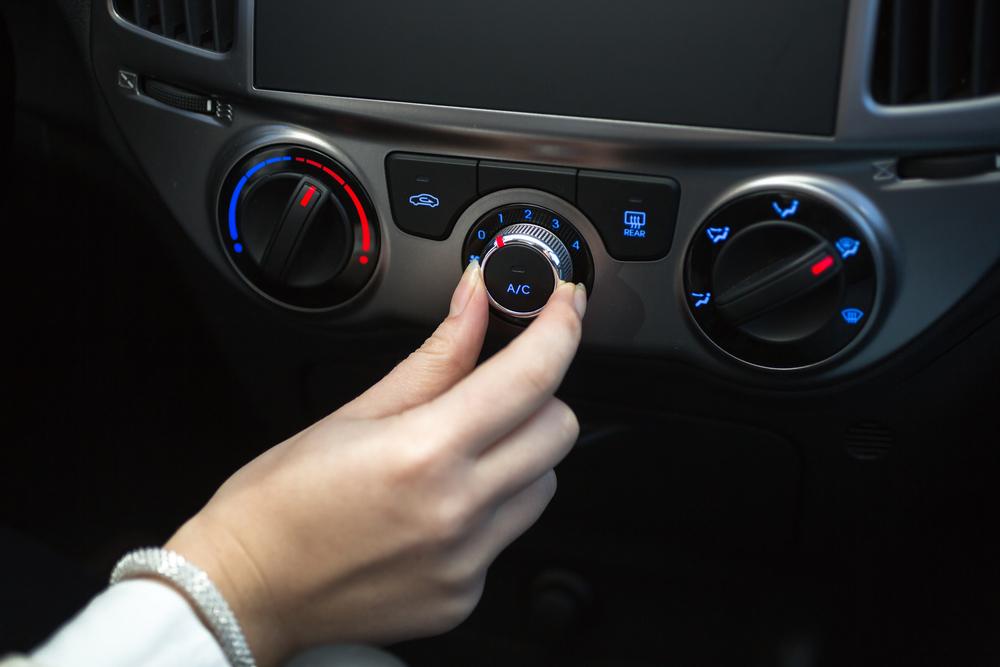
Credit: carfromjapan.com
Cooling System Maintenance
Keeping your truck’s cooling system in top shape is vital. It helps prevent your truck from overheating when the AC is on. Regular maintenance can save you from costly repairs. Let’s explore how to maintain your truck’s cooling system.
Regular Flushing
Flushing the cooling system removes old coolant and debris. This helps keep the engine cool. Old coolant loses its effectiveness over time. It can lead to overheating problems. Follow these steps for a successful flush:
- Park the truck on a level surface.
- Ensure the engine is cool before starting.
- Drain the old coolant into a container.
- Flush the system with clean water.
- Refill with the recommended coolant mix.
Repeat this process every two years or as per the manual. Regular flushing ensures a clean and efficient cooling system.
Inspecting Hoses
Hoses are critical for the cooling system. They transport coolant between the engine and radiator. Worn or damaged hoses can cause leaks. Leaks lead to overheating. Inspect the hoses regularly for these signs:
- Cracks or splits
- Bulges or soft spots
- Loose clamps
- Coolant leaks
Replace any damaged hoses immediately. Use quality hoses and clamps to ensure a secure fit. Proper hose inspection can prevent many cooling issues.
Fan And Fan Clutch
Is your truck overheating when the AC is on? The problem might be the fan and fan clutch. These components play a crucial role in cooling the engine. When they fail, overheating becomes a significant issue.
Fan Malfunction
A fan malfunction can cause your truck to overheat. The fan’s job is to cool the engine. When the fan doesn’t work, the engine gets hot.
- Broken fan blades
- Electric fan motor issues
- Wiring problems
Check the fan blades for cracks. Ensure the electric fan motor is running. Inspect all wiring connections for damage.
Fan Clutch Replacement
A faulty fan clutch can also cause overheating. The fan clutch controls the fan speed. When it fails, the fan doesn’t cool the engine properly.
- Locate the fan clutch
- Remove the old fan clutch
- Install a new fan clutch
Ensure you use the correct tools. Follow the manufacturer’s instructions. Double-check all connections after installation.
Replacing a fan clutch can solve many overheating issues. Regular maintenance helps prevent these problems. Keep your truck’s cooling system in good condition.
Water Pump Issues
If your truck overheats when the AC is on, the water pump might be the problem. The water pump ensures coolant flows through the engine. This prevents the engine from getting too hot. A faulty water pump can disrupt this flow, causing overheating. Let’s dive deeper into some common water pump issues.
Pump Failure
The water pump can fail for several reasons. A common cause is bearing wear. Bearings help the pump run smoothly. Over time, they can wear out and cause the pump to fail.
Another reason is a broken impeller. The impeller moves coolant through the engine. If it breaks, coolant flow stops, and the engine overheats.
Leaks can also cause pump failure. Coolant leaks reduce the amount of coolant in the system. This makes it hard for the pump to keep the engine cool.
Signs Of Wear
Recognizing signs of wear can prevent pump failure. Look for these signs:
- Coolant leaks: Puddles of coolant under the truck.
- Strange noises: Grinding or whining sounds from the engine.
- Overheating: Temperature gauge shows high levels.
Inspect the water pump regularly. Catching wear early can save you from overheating issues.
Airflow Obstructions
Airflow obstructions can cause your truck to overheat. These obstructions limit the cooling efficiency. Identifying and fixing these issues can help keep your truck cool.
Debris In Radiator
Debris can accumulate in your truck’s radiator. This debris can block airflow. When airflow is blocked, the radiator can’t cool the engine efficiently.
Common debris includes leaves, dirt, and small rocks. These items can clog the fins of the radiator. Clogged fins reduce the radiator’s ability to dissipate heat.
Regularly cleaning the radiator can prevent overheating. Use a soft brush or compressed air to clean the fins. Ensure the radiator is free from any obstructions.
Blocked Grilles
The grille allows air to flow into the radiator. If the grille is blocked, air can’t reach the radiator. This can cause your truck to overheat, especially with the AC on.
Blocked grilles can result from various sources. These include road debris, bugs, or even aftermarket accessories. Checking the grille for blockages should be part of your routine maintenance.
Keep the grille clean and clear. Remove any objects that might obstruct airflow. A clean grille helps maintain proper engine temperature.
Expert Solutions
Is your truck overheating when you turn on the AC? This issue can be frustrating and potentially damaging to your vehicle. Fortunately, there are expert solutions to help you resolve this problem. Let’s dive into the details.
Professional Inspection
First, consider getting a professional inspection. A qualified mechanic can identify the root cause of the overheating. They will check for common issues such as:
- Low coolant levels
- Blocked radiators
- Malfunctioning fans
- Faulty thermostats
Having a professional look at your truck ensures that no potential problem is overlooked. This step is crucial for maintaining your vehicle’s health.
Preventive Measures
There are several preventive measures you can take to avoid overheating:
- Regularly check and refill your coolant.
- Clean the radiator to remove debris and dirt.
- Ensure the cooling fans are working properly.
- Replace the thermostat if it shows signs of failure.
- Inspect the drive belts for wear and tear.
Implementing these measures can keep your truck running smoothly. Proper maintenance is key to preventing overheating issues.
To summarize, addressing overheating issues requires both professional help and preventive care. By following these expert solutions, you can keep your truck in top condition, even with the AC on.
Frequently Asked Questions
Why Does My Car Overheat When I Turn On Ac?
Your car may overheat when AC is on due to a failing cooling fan, clogged radiator, or low coolant levels.
Can A Bad Ac Compressor Make Your Car Overheat?
Yes, a bad AC compressor can make your car overheat. It puts extra strain on the engine, causing overheating.
Why Does My Thermostat Temperature Go Up When The Ac Is On?
Your thermostat temperature may rise due to poor insulation, faulty thermostat, or AC issues. Check for airflow obstructions and maintenance needs.
Conclusion
Understanding why your truck overheats with the AC on is crucial. Regular maintenance can prevent overheating issues. Check coolant levels and inspect the radiator. Ensure the fan is functioning properly. Addressing these issues can keep your truck running smoothly. Don’t ignore warning signs to avoid costly repairs.

